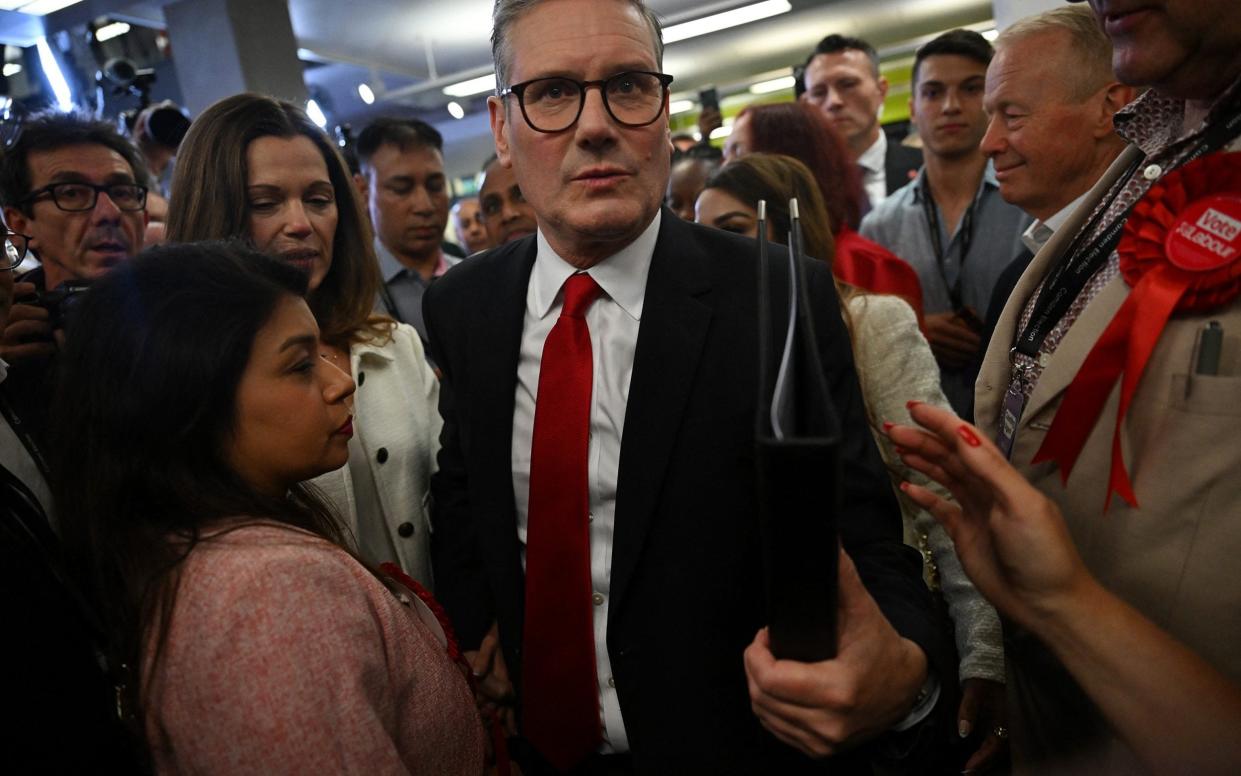Starmer remade Labour. Now he will transform Britain utterly

Until the polls closed, Keir Starmer was in absolute and total control of the Labour party. His word was law and candidates whether newbies or experienced members of the Shadow Cabinet jumped to his tune. Now, he is master of all he surveys across the UK – and he needs to be as bold in leading the country as he was in transforming his party.
Keir Starmer inherits a country with deep and abiding economic challenges – a lost decade and a half in terms of growth, productivity and living standards. There are massive social challenges too – children in poverty, food banks used by workers, huge housing needs. And from the climate crisis to geopolitics the international scene is demanding too.
That is why his government needs to act swiftly and radically.
There’s a lazy cliché in coverage of Mr Starmer that he is a dull politician. Nothing could be further from the truth. Coming to politics after a successful career as a reforming Director of Public Prosecutions, he has eschewed one of the main habits of successful political leaders – narrating his strategy through chosen journalists. He ponders – sometimes at length – and then acts, but doesn’t explain. It is one of the reasons his ruthlessness is underestimated.
The election result is a massive vote for change. Labour’s huge majority reflects a rejection of the incumbent governments in both the UK and Scotland. But the Reform vote tells us something too: that the constituency that delivered Brexit, and then the Johnson landslide, is still there. And as always with political questions there is a pressing need for a political answer.
The good news for Keir Starmer is that he has an answer to hand – it is in his manifesto and its plan for growth. The radicalism of Labour’s manifesto wasn’t properly recognised by the Westminster lobby – they were critical that it had no surprises, no “rabbits from the hat” – and no tax increases apart from already announced. But the content was serious and actionable, providing a clear plan for growth and a strong ideological spine for the three steps Keir Starmer needs to take urgently.
First, in his first words from Downing Street the new Prime Minister must reassure the nation that he gets the message of the election. Divisive politics has been rejected but the fundamentals that are dividing the country must be addressed. There is a need for growth. So much of the country’s discontent is driven by falling living standards and cuts to public services, two things that can only be reversed with growth. But it must be green growth. That is how a Labour government can respond to the surge in votes for both Reform and the Green party.
Second, Labour’s first King’s Speech has to legislate for radical change. In planning, the rules holding back house building have to go. Construction is one of the fastest ways to get growth back into the economy. With this, there has to be a push on the new infrastructure from onshore wind to new electricity pylons that is needed to decarbonise the UK’s energy supply. It can no longer be held back by local NIMBYs when it is nationally so critical.
In living standards, the “new deal” for workers will give an immediate pay rise for young workers who currently have the discriminatory lower starting rate of the National Minimum Wage. And with new rights for workers in the gig economy and for unions to organise there will be further positive changes in living standards.
Third, Keir Starmer has to cut a new figure on the international stage. His first opportunity will be next week’s NATO summit in the US. Here, he will not just be the newest leader, but the least politically beleaguered. His strategic opportunity will be to work constructively with Europe on the shared agenda of security across the board from borders to defence, and also on shared prosperity, removing the friction that hurts both the UK and the EU.
But the most urgent international issue is Labour’s position on Gaza. The slowness with which the party moved to support a ceasefire has lost the party some of its core vote. And it must work as hard to get back those voters as it has to win back the red wall. The first step needed is to recognise Palestinian statehood. It is a simple truth that a peaceful two state solution needs the existence of two states.
The country has spoken. Keir Starmer has to hit the ground listening – and acting.

 Yahoo News
Yahoo News 
